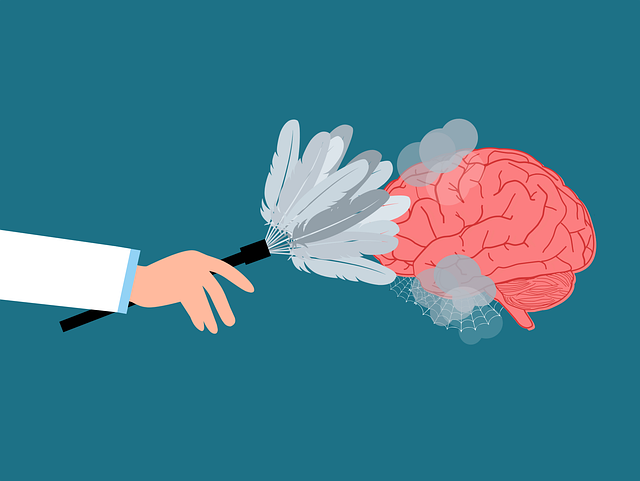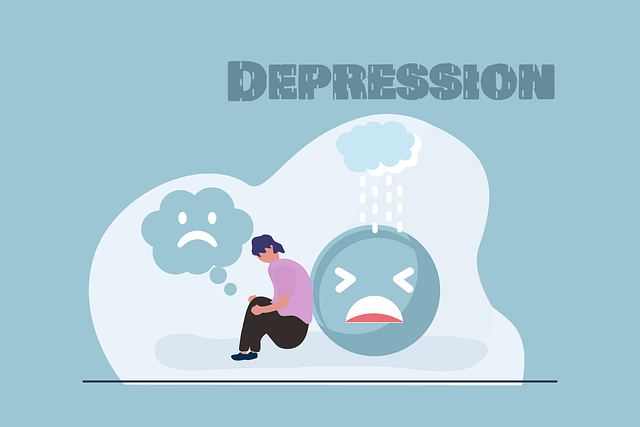“Trauma is a significant challenge faced by many children, with its profound impact on their emotional and psychological well-being. This article explores critical aspects of trauma support services, focusing on understanding childhood trauma and its lasting effects. We delve into effective therapy models tailored for young survivors, emphasizing the importance of access to trauma-informed care. By examining these key areas, we aim to enhance awareness and improve resources for providing comprehensive therapy for children experiencing trauma.”
- Understanding Children's Trauma and Its Impact
- Providing Effective Therapy for Young Survivors
- Accessing and Supporting Trauma-Informed Services
Understanding Children's Trauma and Its Impact

Children’s trauma is a significant issue that can have long-lasting effects on their emotional and psychological well-being. It’s essential to understand that trauma isn’t just about one event; it includes various experiences, such as abuse, neglect, violence, or severe loss, that can overwhelm a child’s ability to cope. These events can disrupt the brain’s development, particularly in regions responsible for emotions, memory, and decision-making, leading to complex challenges later in life.
Early intervention is crucial in providing therapy for children trauma. By offering support and appropriate coping skills development, mental health professionals can help children process their experiences, regulate their moods, and enhance their overall mental health awareness. Effective therapy focuses on creating a safe space for children to express themselves, fostering resilience, and teaching them healthy ways to manage emotions and stress. This not only aids in recovery but also empowers them to navigate future challenges with greater adaptability and strength.
Providing Effective Therapy for Young Survivors

Trauma support services for young survivors must prioritize age-appropriate therapy that caters to their unique needs and developmental stages. Children often experience trauma differently than adults, requiring specialized approaches to foster healing. Effective therapy for young trauma survivors involves creating a safe and nurturing environment where they can develop self-awareness exercises tailored to their age. These exercises help them process emotions, understand their experiences, and learn healthy coping skills development.
Through play therapy, art therapy, or other engaging activities, therapists can guide children in expressing their feelings and making sense of their world. This holistic approach not only addresses the trauma but also promotes anxiety relief, enabling young survivors to rebuild trust and develop essential life skills. By incorporating evidence-based practices and self-regulation techniques, therapy for children with trauma can be transformative, helping them heal and thrive.
Accessing and Supporting Trauma-Informed Services

Accessing trauma-informed services is a crucial step towards healing and recovery for individuals who have experienced traumatic events. Many communities now offer specialized programs designed to support those dealing with therapy for children trauma. These services are tailored to recognize and address the unique needs of children who may have suffered from abuse, neglect, or other distressing experiences. By incorporating techniques such as play therapy, art therapy, and mindfulness exercises, mental wellness podcast series production can create safe spaces for young individuals to express their emotions and process their traumas.
Ensuring access to these services often involves partnerships between local organizations, healthcare providers, and community advocates. Promoting positive thinking and self-esteem improvement are integral aspects of trauma support, as building resilience and a sense of security helps individuals cope with their experiences. Through collaborative efforts, communities can raise awareness, reduce stigma, and encourage those affected by trauma to seek the help they need, ultimately fostering a more supportive environment for healing and growth.
Trauma support services are vital in helping young survivors navigate their experiences. By understanding children’s trauma and its impact, we can provide effective therapy tailored to their unique needs. Accessing trauma-informed services ensures a nurturing environment that fosters healing. Through these efforts, we can enhance the well-being of affected children and offer them a path towards a brighter future, focusing on the critical role of therapy for children trauma.










